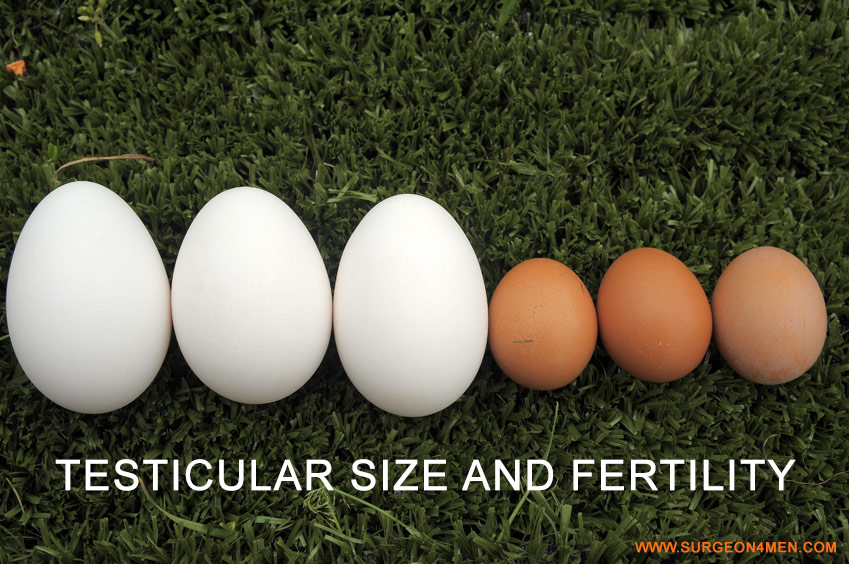Testicular Size and Fertility
In many cultures, the size of a man’s testicles has been regarded as a marker of his fertility. Men that possess larger testicles have been regarded as more fertile than men that possess average or smaller testicles. However the notion that fertility is contingent on testicular size is generally incorrect. In general terms, the size of a testicle does not usually play an effect on its ability to produce viable sperm necessary for fertilization of an egg and reproduction. It should be noted, however, that these statement are made with respect to healthy individuals that do not have diseases or disorders that have caused shrunken or small testicles.
Viable sperm production is the ultimate factor by which fertility can be judged. Sperm count as well as sperm health are some of the more significant factors that should be assessed to help determine fertility amongst men. While there are many factors that can influence actual testicular size: genetics, body proportion, medication use, a taller individual with proportionately larger testicles does not necessarily produce more sperm by volume than a shorter man with smaller testicles.
Variance in Testicular Size
There are many reasons for a variance in testicular size throughout the lifespan of men. As a part of the natural aging process, many men may experience signs and symptoms of decreasing androgen (specifically testosterone)
- Changes in their testicle’s texture and/or size
- Decreased libido
- Loss of body hair
- Erectile Dysfunction symptoms
If you or someone you know has concerns about their fertility or the size of their testicles, consult a primary care doctor or urologist.
